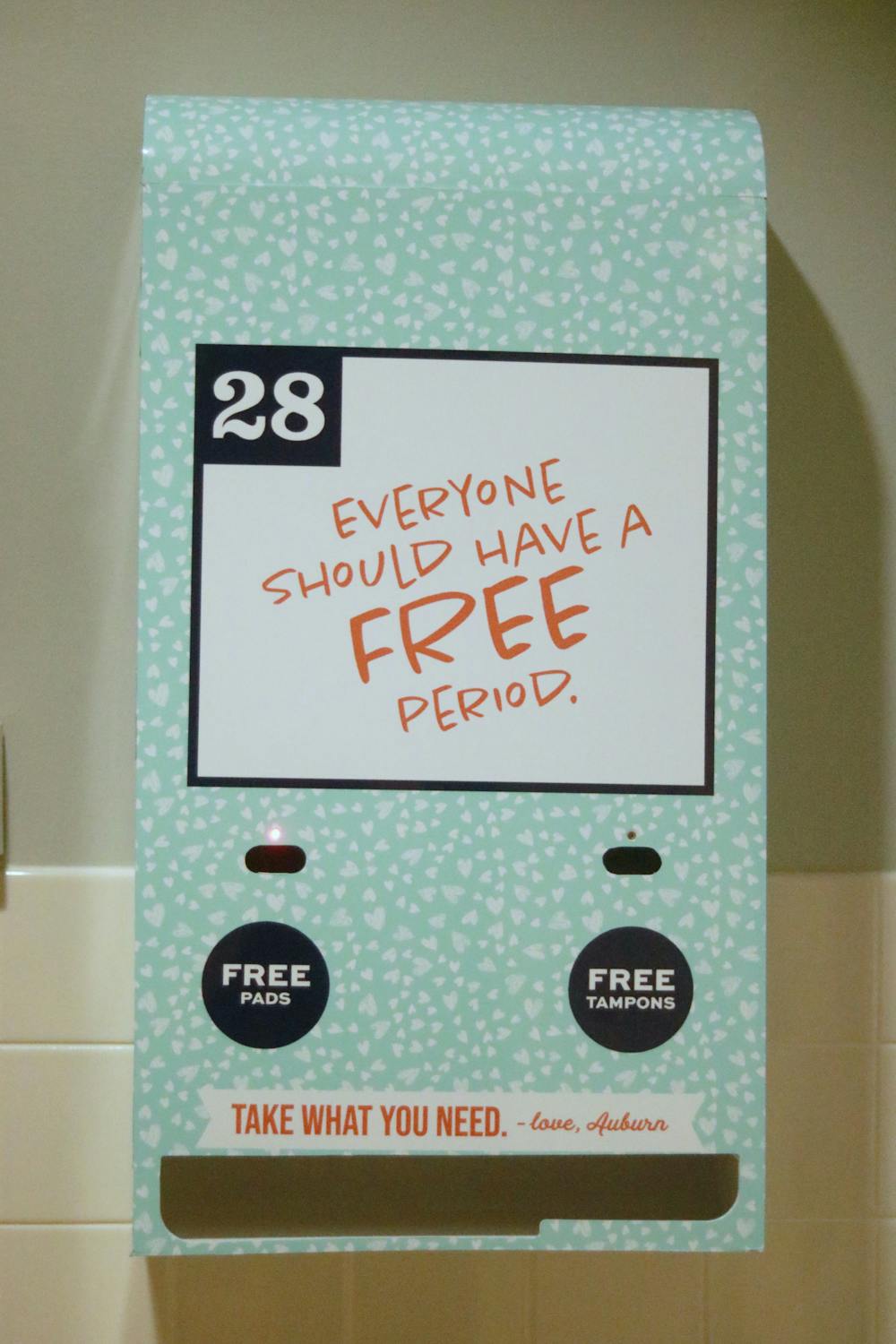After decades of inaction, the installation of menstrual product dispensers around Auburn’s campus is aiming to combat period poverty on the university and beyond.
Period poverty, or the inability to access pads, tampons and other period products and lack of access to toilets, clean water and waste management services, is a pervasive and hidden problem on college campuses. According to a 2021 BioMed Central study, 14.2% of college-age women had experienced period poverty at some point in the past year and 10% experienced it monthly.
To alleviate this problem, the Auburn chapter of PERIOD, a global, youth-led nonprofit seeking to end period poverty and social stigma, approached the university to determine if existing funding could be allocated to provide students with free menstrual products.
This August, Auburn’s campus featured 139 new product dispensers across campus in locations ranging from the Bailey Small Animal Teaching Hospital to Biggin Hall. According to Tonika Boyd, director of the Office of Inclusion and Diversity, this is just the beginning.
“All 139 [dispensers] from Phase I are installed and stocked. This is a multi-phased project,” said Boyd. “Currently, the plan is to add additional locations over the next two years.”
According to Boyd, the first phase of the project has cost the university $52,000, which has been shared between the coordinating offices’ respective budgets. The cost of the next several phases is yet to be determined.
Before advocating for a campus-wide program, PERIOD worked directly in community level, which included stocking menstrual products at the campus food pantry and partnering with various organizations such as The WellHouse and Redeeming Grace Ministries.
However, these efforts did not have the impact a holistic and sustained provision program could.
The work PERIOD put in to turn its dream into a reality began long before the first dispensers were installed. While university offices and student organizations were receptive to PERIOD’s initiatives, there was little action as leaders struggled to decide which offices were best equipped to distribute menstrual products.
Near the culmination of a year-long effort that began in August 2021, the OID, Facilities Management and Property Management were identified as ideal offices to handle the undertaking. According to Regan Moss, the former President of PERIOD’s Auburn chapter, the offices donated their time and energy to install dispensers in restrooms that were outlined in the final proposal.
When PERIOD first started gathering support for the program, they experienced some initial resistance but were pleasantly surprised once conversations moved from being conceptual to tangible.
“I thought we would get more backlash than we did, but overwhelmingly, we had a pretty good response,” Moss said. “I think there's still a little bit to combat in terms of getting people on board with giving free products if people are facing economic insecurity, or some eco-political factor that is causing their inability to access products.”
Once the stations had been installed in bathrooms across campus, the outpouring of reaction from students was immediate if not indirect and through unofficial channels.
According to Moss, there was an almost immediate reaction of relief and gratitude from students through PERIOD’s Instagram account, which “received like a million different DM's” thanking them for their efforts.
While the addition of the menstrual product dispenser stations has certainly been welcome, Moss believes there are still areas for improvement.
“I reached out to the med clinic this spring trying to understand what the staffing was like, and we don't presently have any gynecologists at the student med clinic. And that is also a serious issue: people obviously have pretty significant health needs related to periods,” she said. “We haven't fully met the need of students on campus until we're able to give people adequate care in addition to the tools that period products serve as.
With much progress yet to be achieved regarding women’s reproductive health on Auburn’s campus, the new menstrual products are a reminder that progress can be achieved.
Do you like this story? The Plainsman doesn't accept money from tuition or student fees, and we don't charge a subscription fee. But you can donate to support The Plainsman.
Daniel Schmidt, senior in journalism, is the assistant news editor for the Auburn Plainsman.





